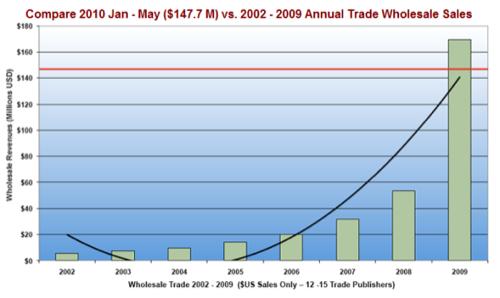Dorchester, the oldest publisher of mass-market paperbacks in the U.S., has made the decision to sell all their titles in electronic form and move the mass-market focus from paper to electronics.

Like most publishers, Dorchester has not weathered the recession well. Last year saw sales decline by 25% according to the Wall Street Journal. Eliminating production and transportation costs may increase their chances of survival, if people are willing to buy the books for their e-readers or to read online.
In a letter to its authors, pointed to by mediabistro, Dorcester executives explained their decision.

“The substantial growth we’ve seen in the digital market in such a short period–combined with the decline of the mass-market business–convinced us that we needed to fully focus our resources in this segment sooner rather than later…As bookstores are allocating the bulk of their capital to the digital business, it only makes sense that we do the same.”
Although the idea that bookstores are spending most of their money on e-books seems a bit dramatic, the International Digital Publishing Forum backs up Dorcester’s assertion that e-books are gaining. The first quarter of 2010 saw wholesale e-book sales over-top the $91 million mark.(Q1 of 2002 saw sales of only $1.5 million.) Retail sales may double that figure, according to the organization. Earlier in the month, Amazon announced that Kindle books outstripped hardback sales.
The e-book format has inherent multimedia possibilities: trailers, background and reference materials, interviews, actors reciting the poems the book contains. But will these ultimately be considered enrichment of the text or just distractions from it? Perhaps these sorts of experiments will go the way of Flash splash pages and manically hyperlinked documents. In the end, the portability may be the fulcrum, the only fulcrum. Are e-books simply the paperbacks of the future, the cheapest way to publish the cheapest books for the largest number of readers?

















